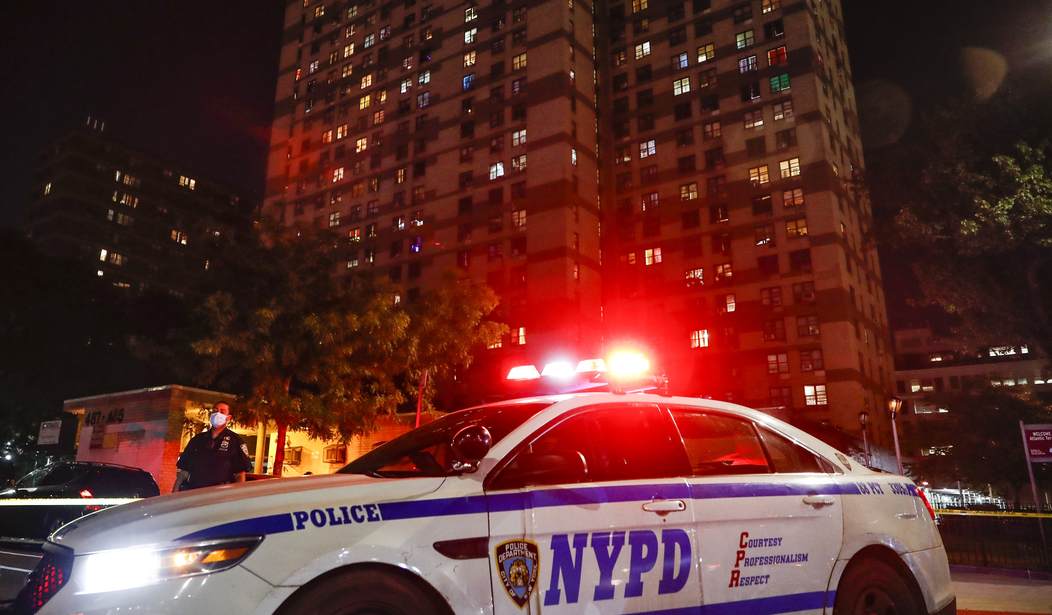Last week, New York’s progressive Assembly speaker, Carl Heastie, claimed he doesn't believe increasing penalties deters crime. He said:
"I was simply asked a question of, ‘Do I believe that increasing penalties deters crime,’ and I gave a simple answer, ‘No,’ ” Heastie told reporters Tuesday. “I don’t believe, in the history of increasing penalties, has that ever been the reason that crime has gone down.
"I'd love somebody to give me an example as to when that happened."
Unfortunately, Heastie is hardly alone. Soros backed District Attorneys across the country don’t believe that their unwillingness to prosecute criminals has anything to do with increasing crime. In academia, most criminologists (which is dominated by sociologists) don’t even include things like arrest and convictions rates in their empirical work on questions such as gun control because they don’t think that it matters in determining crime rates.
It is hard to believe that anyone takes such a claim seriously, but it is a popular idea among progressives. If Heastie really believes that, then he should be open to abolishing police and prisons. If penalties don’t reduce crime, then why waste money on police, courts, and prisons? By the same token, perhaps we should also eliminate the penalties for violating the gun control laws that Heastie so strongly supports.
We can see what happens on our southern border when we don’t enforce laws or impose penalties. People simply continue breaking the law and entering by the millions.
California’s murder rate peaked in 1993 at 13.1 per 100,000 people, an increase from 10.9 per 100,000 in 1989. But by 2000, the murder rate had fallen by 53% compared to its 1993 peak. One obvious explanation is the enactment of California’s tough, three-strikes criminal punishment law on March 7, 1994.
Recommended
New York City increased the number of police officers from 31,000 to 40,000 during the 1990s, and major felonies meanwhile plunged from 430,460 in 1993 to 162,064 in 2001. Over those same years, the number of murders plummeted from 1,927 to 649.
Amidst longer prison sentences and higher arrest and conviction rates, criminals will commit fewer crimes. The vast majority of empirical research by economists shows that. It’s also simply logical that in addition to keeping criminals off the street, the threat of arrest and conviction will deter criminals. The higher price for crime, the less crime you get, Most criminals do not want to go to prison.
Criminals also don’t want to get hurt, and an armed citizenry can make criminals think twice. The defensive value of guns is evidenced by international comparisons of so-called “hot burglaries,” whereby a resident is at home when a criminal strikes. In the United Kingdom, which has tough gun-control laws, almost 60% of all burglaries are “hot burglaries.” In the United States, where gun ownership is commonplace, the “hot burglary” rate stands at only 13 percent. The overall burglary rate in the UK is about two-thirds higher than the rate in the US (2.7 per 1,000 in US and 4.5 per 1,000 in England & Wales).
Convicted American felons reveal in surveys that they are much more worried about armed victims than about encountering the police. The fear of armed victims causes American burglars to spend more time than their foreign counterparts in “casing” a house to ensure that nobody is home. American burglars break into homes during the middle of the day, when homeowners are less likely to be at home, but British burglars often break in during the evening so that they can get the homeowners to open up any safes. Felons frequently comment in interviews that they avoid late-night burglaries because “that’s the way to get shot.”
It isn’t rocket science. Criminals are deterred with higher arrest and conviction rates, longer prison sentences, and the fact that victims might be able to defend themselves. One wonders if people like Carl Heastie have ever had children.
Lott is the president of the Crime Prevention Research Center and the author most recently of “Gun Control Myths.”

























Join the conversation as a VIP Member